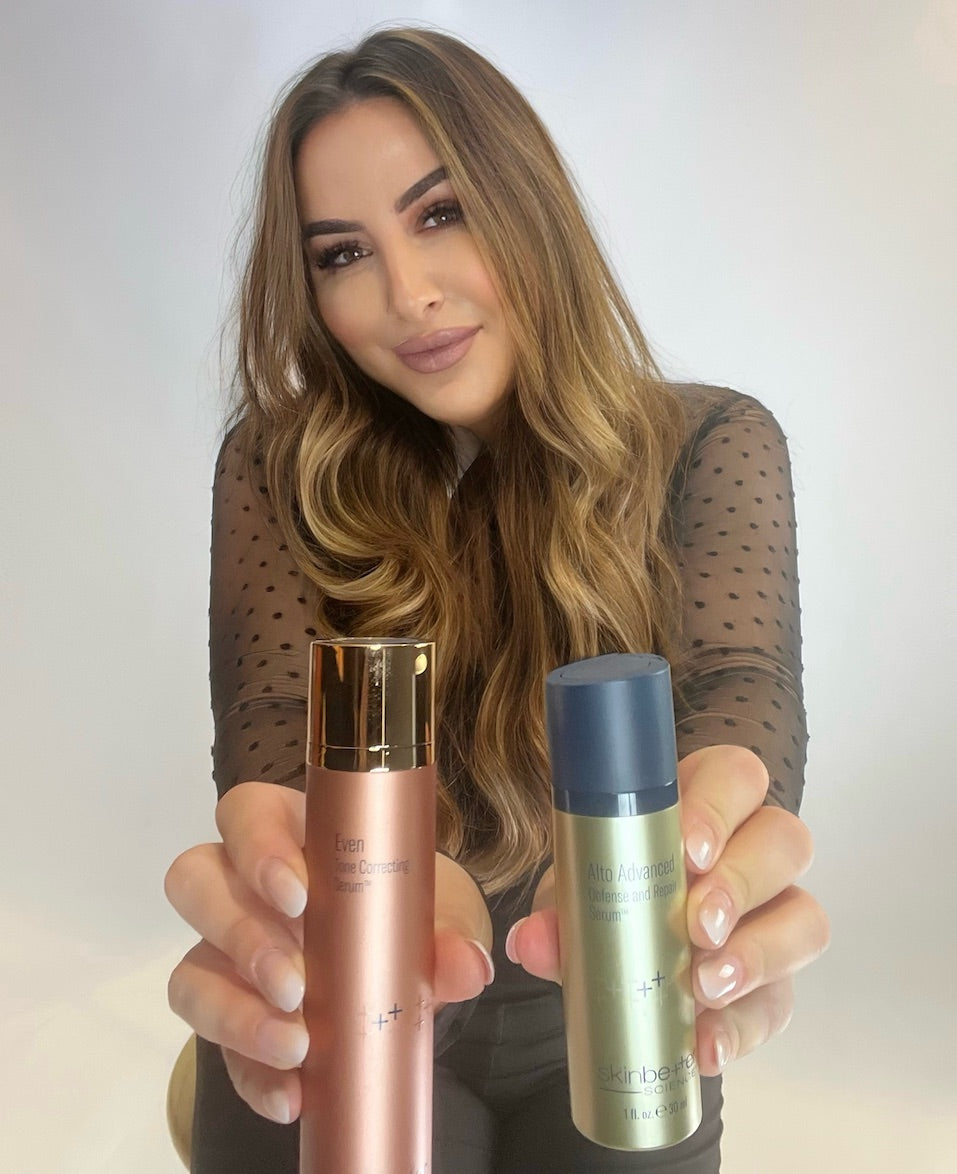Ree Drummond loves almost everything about winter: "Marlboro Man and I have a running dialog about my love for winter. I love winter, he doesn’t. I love snow, he doesn’t. I love freezing temperatures, he doesn’t."
But Ree knows that one major pain point is winter skincare. Just when you think you’ve got your skin woes under control and a good skincare routine down—bam—winter comes to town and messes everything up. You know the feeling: dry, flaky, cracked, and itchy. It's the worst!
Susan Van Dyke, MD, a board-certified dermatologist at Van Dyke Aesthetics, says that the low temperatures and low humidity wreak havoc on skin, creating a tough challenge for winter skincare. Not to mention that the indoor heating keeping you cozy and warm is actually making matters worse. "The surface cells on your skin dry out," she says. "They lose the ability to protect the delicate underlying cells and then those dry out too. The process continues deeper into the layers."
On top of all that, the constant hand washing that has become the new normal doesn't exactly help out in the dry skin department (though this at-home manicure might help). Keeping your skin hydrated during the colder months is difficult, but a few skincare experts have shared some of the best ways to fight the good fight to keep you hydrated and moisturized in the cold.
Raja Sivamani, MD, an integrative dermatologist, founder of Zen Dermatology and Arbonne scientific advisor, suggests taking an individual approach: “The skin types should be thought of in a more personal way. We are each unique combinations of different levels of oily, dry, or sensitive skin. It will make a big difference in reducing the guesswork that you might have in figuring out what products pair well with your skin.”
With a little help from these experts, anything is possible.
Know Your Skin Type
Skincare should never be viewed as a one-size-fits-all process. Everyone’s skin is going to react to changes in the weather differently. Getting to know your skin type is a huge step in treating issues related to winter skin.
"Everyone's skin definitely goes through a rough patch due to the weather shift." —Crystal Koro
But if you can’t get to a specialist to have your skin analyzed, celebrity aesthetician and founder of Clear Skin and Beauty, Crystal Koro, broke down how some common skin types react to the cold.
Oily and Combination Skin
Even if you have oily skin or maybe an oily/dry combo, winter weather still dries your skin out. When the skin on your face gets too dry, it'll produce more sebum and oil to lubricate it. This over production can result in more acne and even more dehydration.
Dry Skin
Dry skin will accumulate more flaky skin on its surface, making it harder for great moisturizers to penetrate the skin's surface—which essentially keeps the products from doing their job.
Rosacea
People who are prone to rosacea often find that the cold, harsh environment really aggravates their skin. The change in moving between the cold outside and warmth inside a building, for example, can flare up rosacea and facial flushing
Stay Moisturized in Winter
Maintaining you skin's barrier is the most important tip! Not only does your skin look good when it's healthy, but it also protects you from bacteria, toxins, and even viruses, which is super important nowadays.
"Moisture retention is the key to preventing winter skin dilemmas." —Dr. Susan Van Dyke
"Start moisturizing before you get into trouble," Dr. Van Dyke says. Along with staying on top of your moisturizing, taking a more holistic approach is never a bad idea. Your mind and body can also affect your skin's health. It's all a delicate balance.
“Remember to hydrate well and eat foods and supplements that support a healthy gut and a healthy skin barrier. Winter is also a great time to re-focus on good sleep habits," Dr. Sivamani says. "For the skin, using a moisturizer like Arbonne's AgeWell Moisture Restoring Cream is a must and body and facial oils like coconut oil or jojoba oil can be supportive for those with drier and more sensitive skin.”
One of the best ways to get maximum moisture retention is to apply your moisturizer while you skin is still a little damp. That'll help seal in all the good stuff for super smooth, soft skin.
"Shea butter is ideal for this; it helps to replenish the natural balance of oils that your skin needs to stay healthy and retain its function of protecting you from the assaults of the world we live in," says Dr. Van Dyke.
Best Body Lotions for Winter Skin
Winter Skincare Pitfalls to Avoid
When it comes to skincare in the winter, there are some definite no-no habits that you’ve just got to kick! This is a time to be gentle to your skin. In fact, our bodies actually have very few oil glands and are super vulnerable to drying out. So if you were thinking of trying out that new retinol serum or alcohol-based product, exfoliating every day or even ending the night with a hot shower, winter probably isn’t the best time to start. All of these things will just leave you with ultra-dry skin.
"If skin is exfoliated too often or too aggressively, its barrier function can become compromised, which can lead to dehydrated skin, capillary damage and can ultimately make acne worse," Crystal says.
Best Gentle Facial Cleansers





